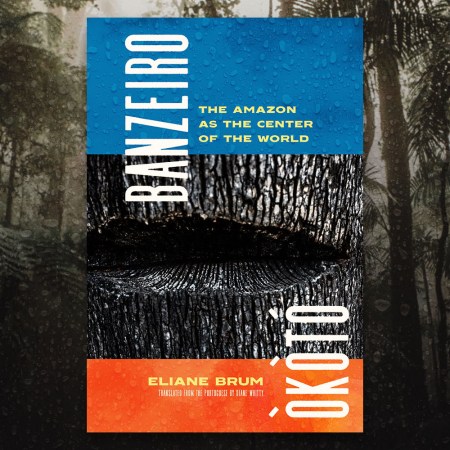Welcome to the final turn towards the end of the year. We’ve got three months left of 2019, so it’s time for publishers to start rolling out their big releases: A new spy novel by the author who does spy novels better than anybody; new novels, memoirs and essay collections from a few of this generation’s brightest voices; a biography on one of America’s most famous names by one of the great chroniclers of big lives; and plenty of books on food and drinking. These are the books you read for yourself and end up buying again to give as gifts a couple of months from now. These are the best books of October, and you can expect to see a few of these on the list of best books of 2019 as well.
The Topeka School by Ben Lerner (Oct. 1)
How did we get here? Like how did we arrive at this very odd, toxic moment in time? That is a large question that Ben Lerner answers without really asking in The Topeka School. It’s sort of what comes before his 2011 debut, Leaving the Atocha Station, but its subject matter feels very much of the Trump era, as in the author has definitely had a lot rattling around in his brain, and using one of his Atocha Station characters’ backstories — the book is set in 1997 — helps him unpack those things in a way only Ben Lerner could.
How We Fight for Our Lives: A Memoir by Saeed Jones (Oct. 8)
One of the most anticipated memoirs of the year, Jones, who has wowed us in the past with his essays and poetry, delivers with a story of growing up gay and black in the South. The reservation people usually have when it comes to memoirs is the nagging question about how interesting one life can be. With Jones, it’s the deeply afflicting way he tells his story, the observations and the urgency that’s felt sentence for sentence. Together, they make How We Fight for Our Lives worth the hype.
Grand Union by Zadie Smith (Oct. 9)
Zadie Smith was in her 20s when she helped kick off the year 2000 with what remains one of the most acclaimed novels of this century, White Teeth. Since then, she hasn’t abandoned the novel, but she’s dabbled in other forms of writing, including essays and the short story. She’s started collecting her non-fiction (her recent collection, Feel Free, is highly suggested), but Grand Union represents her first time putting her short stories into a book. And really, what can be better than reading a short story or two on a chilly autumn Saturday? The answer is not all that much.
Alpine Cooking: Recipes and Stories from Europe’s Grand Mountaintops by Meredith Erickson (Oct. 15)
Meredith Erickson delivers both the coziest as well as the most elegant cookbook of the fall. These are the dishes and drinks you might experience sitting around a fireplace in a ski lodge in Saint Moritz or some little town on the border of Italy and France with the mountains just behind you, and just looking through this beauty will transport you from your messy apartment to après ski somewhere in the Alps.
Catch and Kill: Lies, Spies, and a Conspiracy to Protect Predators by Ronan Farrow (Oct. 15)
Ronan Farrow has carved out a space for himself as nothing short of one America’s most important journalists. If you find out he’s investigative you, then you probably did something really wrong. Here, in what should be one of the most talked about books of 2019, Farrow goes deep exploring the lengths Hollywood’s elite will go to protect themselves from scandal in the #MeToo era. Farrow’s reporting — along with the way he tells the story, which reads like a thriller more than just some bland account of one thing happening and another — is the reason this isn’t just one of our most anticipated books of October; we’ll probably be talking about it for a long time to come.
Agent Running in the Field by John le Carré (Oct. 22)
John le Carré has gotten better with age. With his latest, he writes a spy novel for 2019, at turns downright funny, but also thrilling and always brilliant. There’s an existential question just below the surface of this: What purpose does a spy agency serve in the times of Brexit, Trump and Putin? In previous decades, we’d take novels by the likes of le Carré, Ian Fleming or Graham Greene at face value, a necessary part of the times. That’s what makes each book by this 87-year-old author so fascinating, but especially this one. He understands that, yes, there has to be something inherently entertaining about spy novels, but he always gives you something deeper. That’s why he’s the best at what he does.
Edison by Edmund Morris (Oct. 22)
There’s this line you’re fed when you’re a kid that Thomas Edison was the guy who invented electric light, and that he was one of America’s great minds. Then you find out there’s a much bigger story there. You learn about his rivalry with Nikola Tesla, that Edison was more of a business and branding genius than people give him credit for, and that, like any person we place on a pedestal, he had a dark side. Edmund Morris, who took home a Pulitzer Prize for his biography on Teddy Roosevelt, dedicated several years of his life to exploring every angle of the Edison life story, and the result is this, one of the most anticipated biographies of the year.
All This Could Be Yours by Jami Attenberg (Oct. 22)
Jami Attenberg hasn’t written a dull book yet, but her 2012 novel, The Middlesteins, is one of the finest novels to come out in this young century. With All This Could Be Yours, Attenberg revisits somewhat familiar territory, giving us a family coming to grips with their fractured past. Yet this book gets at some really deep, fundamental truths about the bonds that tie us together, and sees Attenberg at her strongest yet, with each passing sentence as crisp and urgent as the next. This is another great work by one of our finest novelists.
Last Call: Bartenders on Their Final Drink and the Wisdom and Rituals of Closing Time by Brad Thomas Parsons (Oct. 22)
Have you ever been inside a bar towards the wee hours of the morning, the point when the last stragglers are hanging out and somebody yells out there’s time for one last drink? Have you ever gone a little bit beyond that last drink? Like hung around with the people serving the beers and shots and Martinis and whatever else? Brad Thomas Parsons spent a lot of time doing that, traveling from coast to coast seeing what bartenders drink and do when the shift is over, and the result is this gorgeous, poetic paean to the point that officially brings together the end of the night and the start of the morning.
This article was featured in the InsideHook newsletter. Sign up now.


















